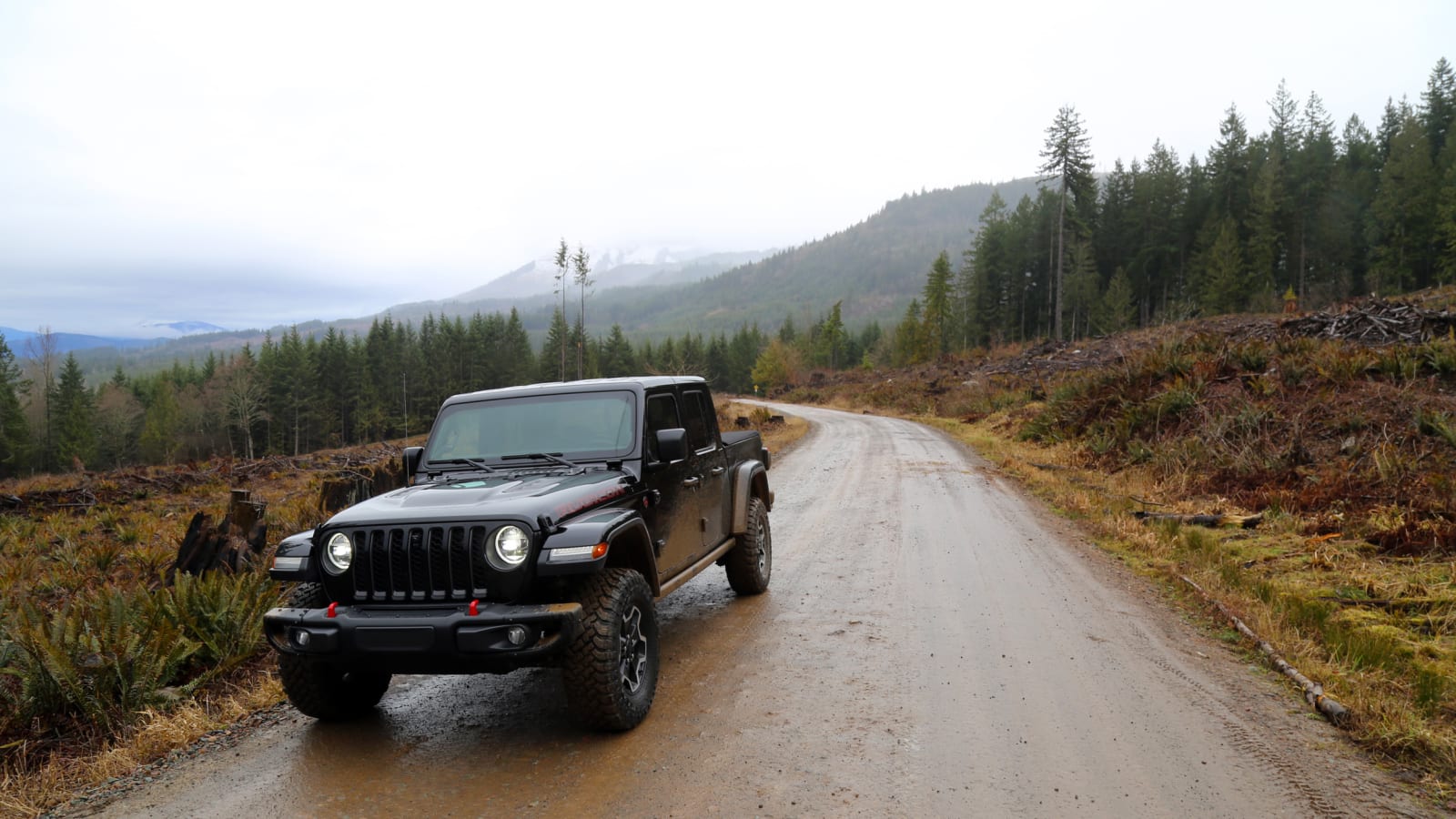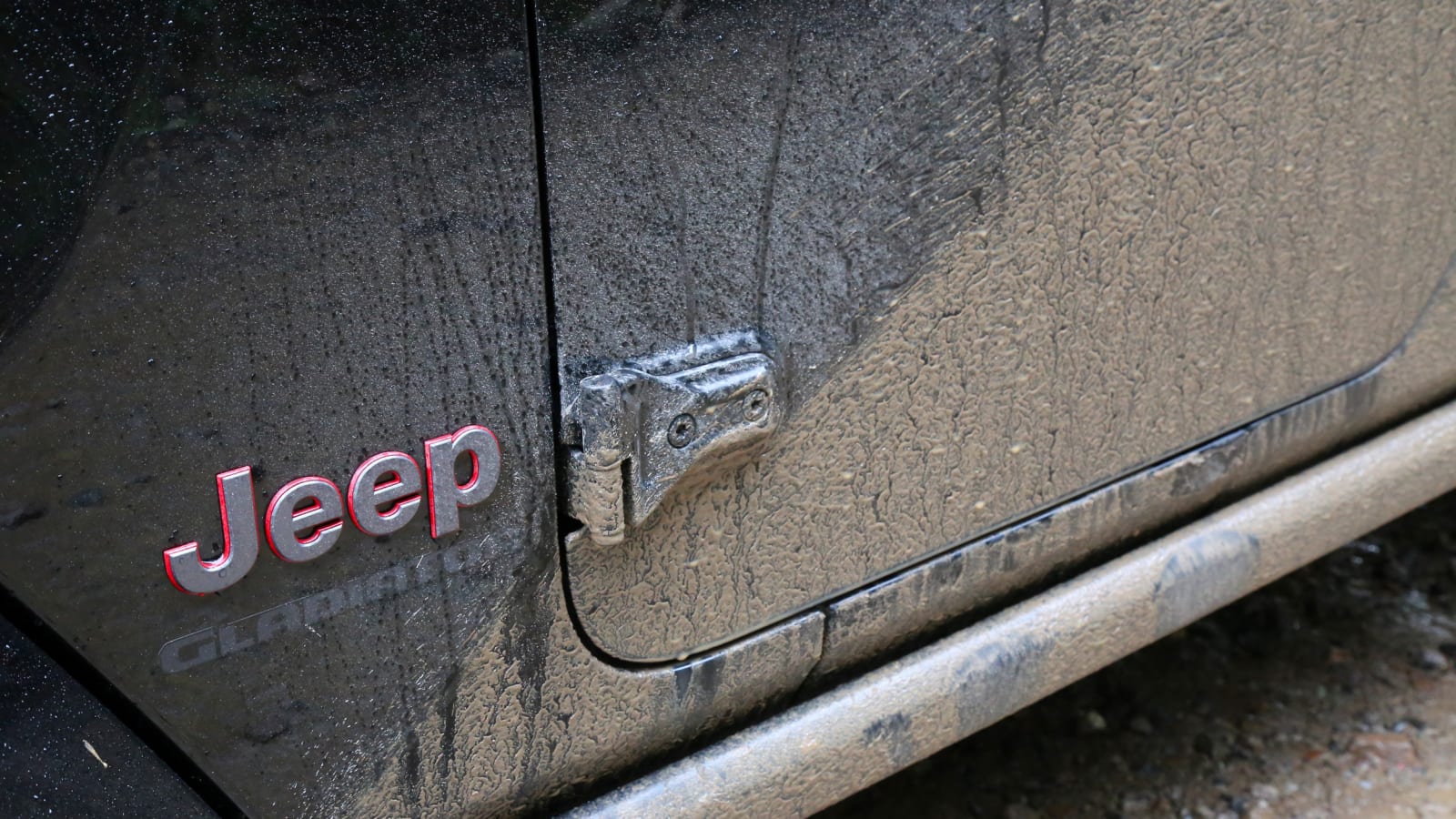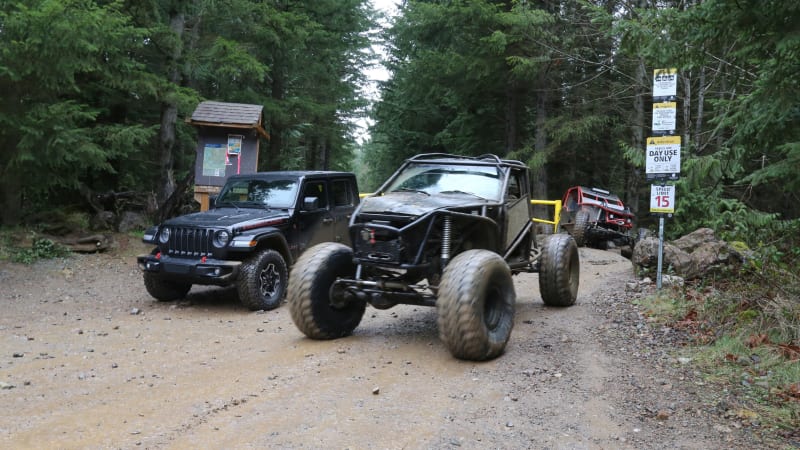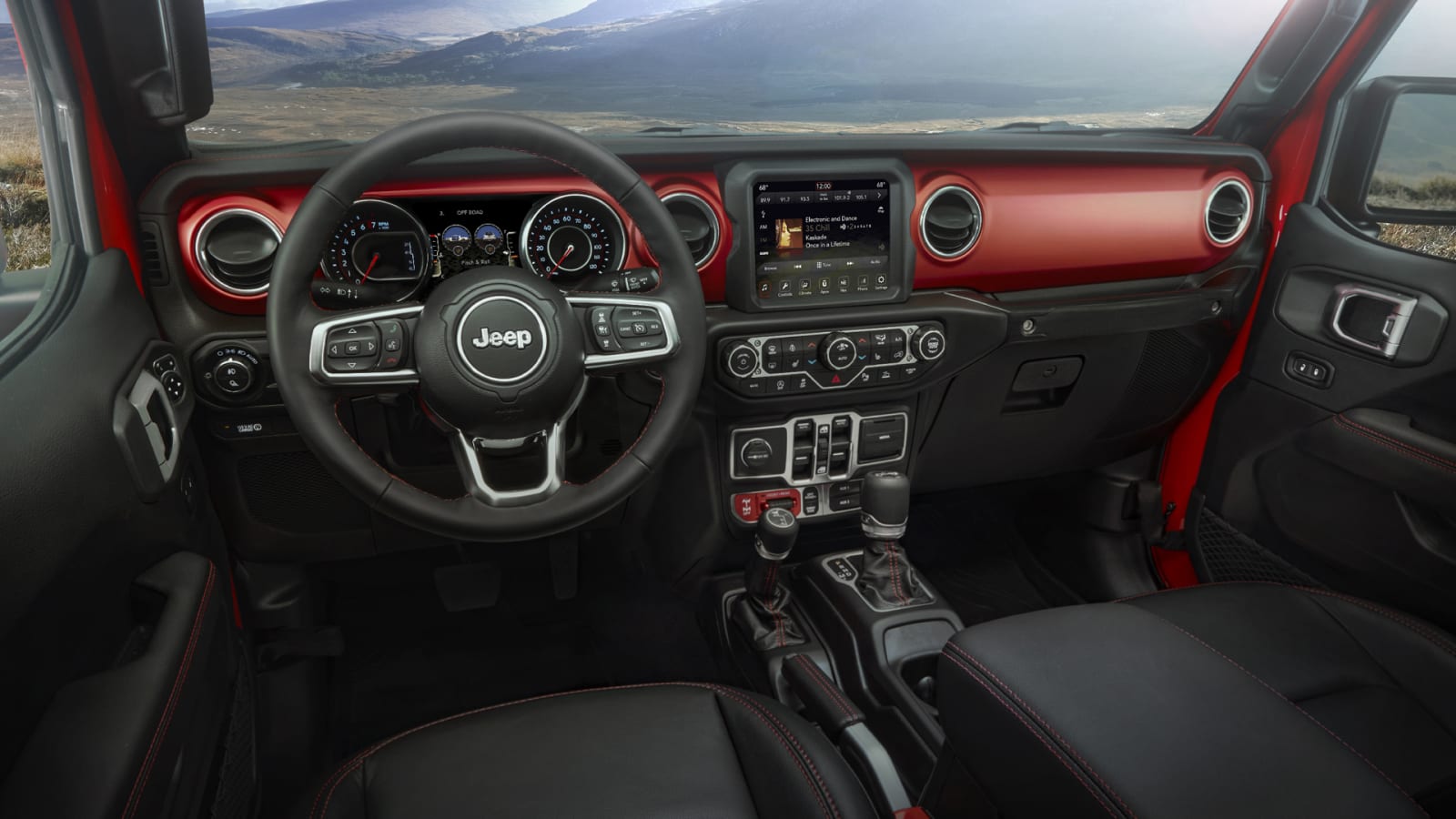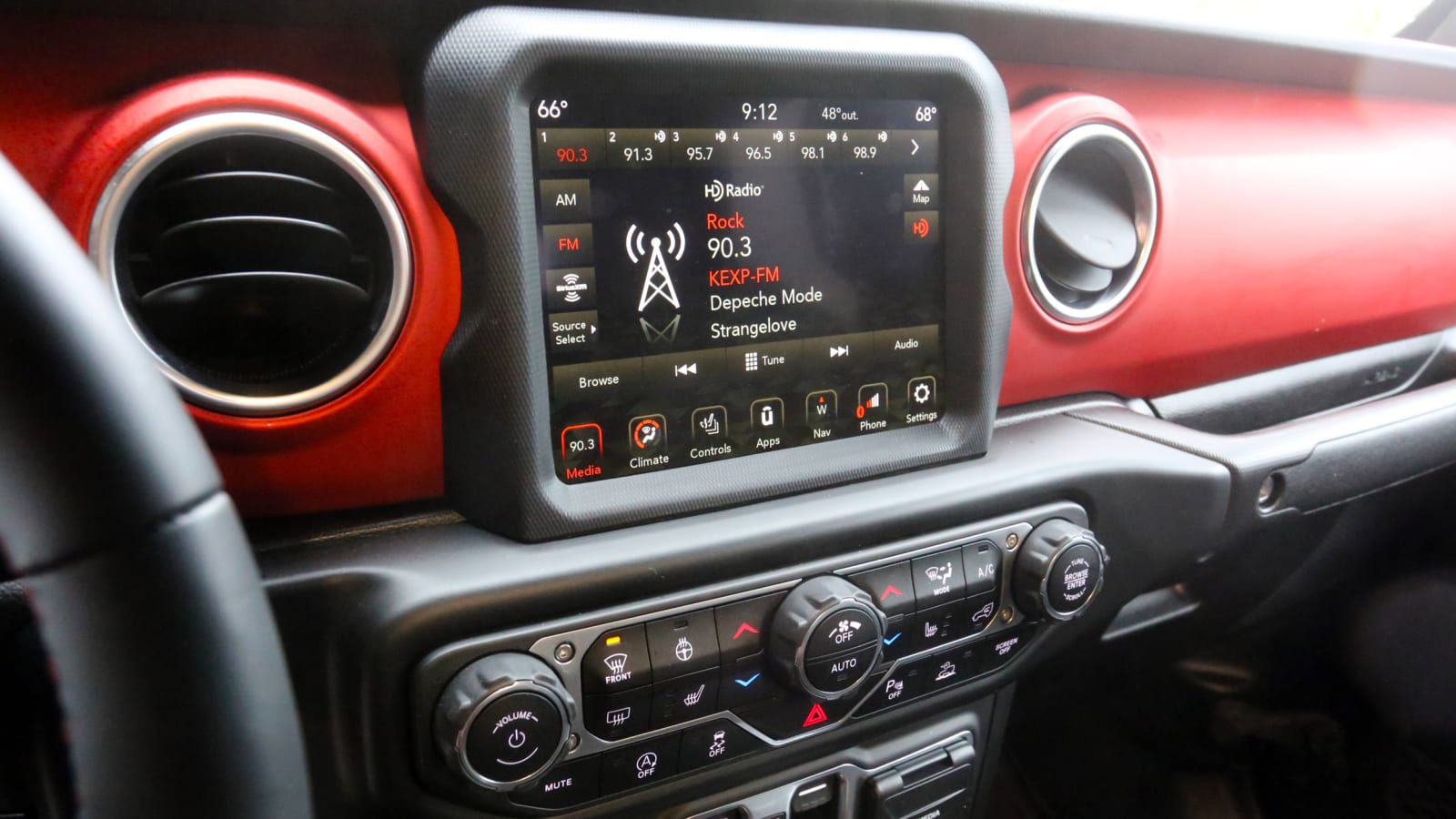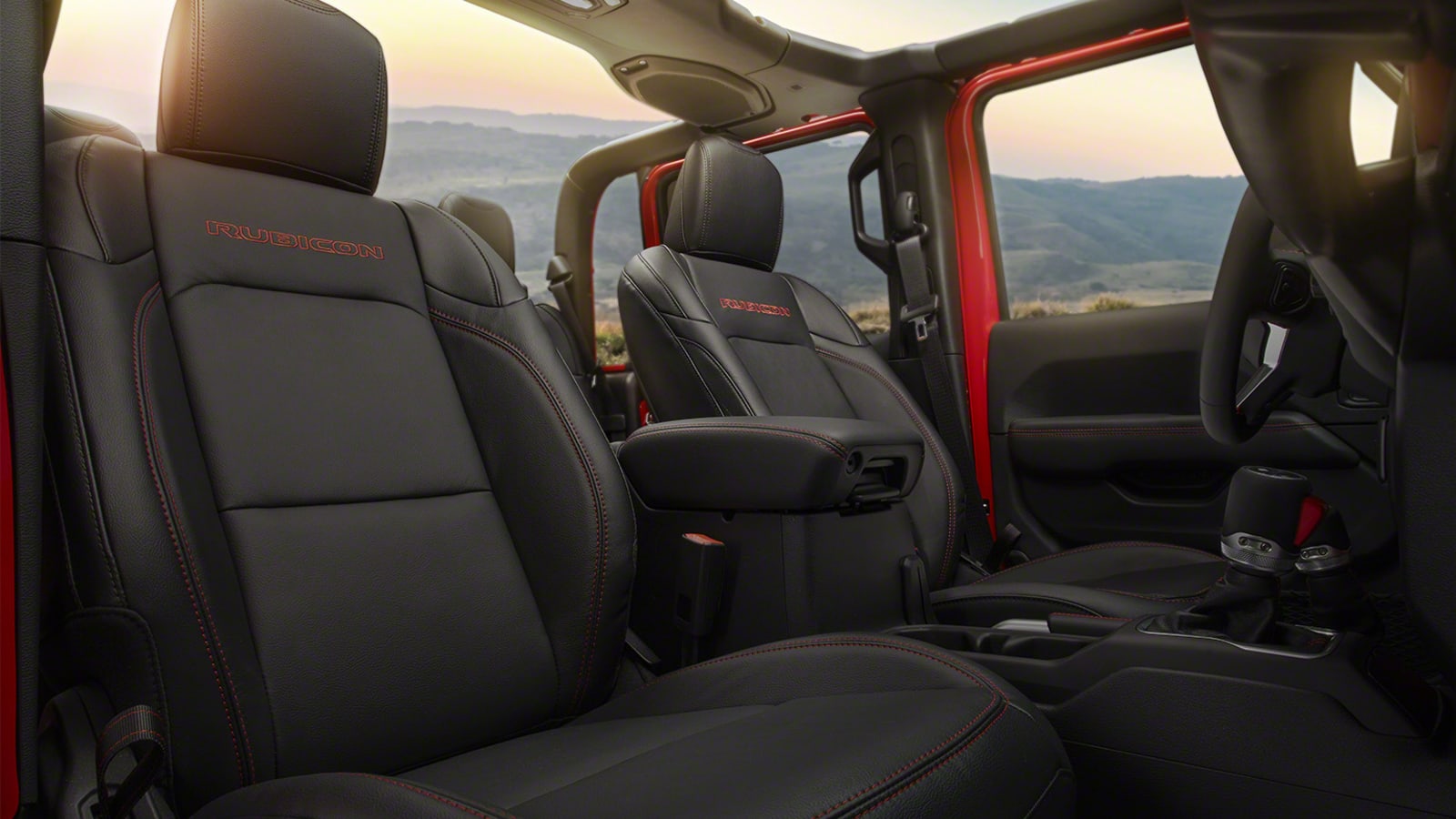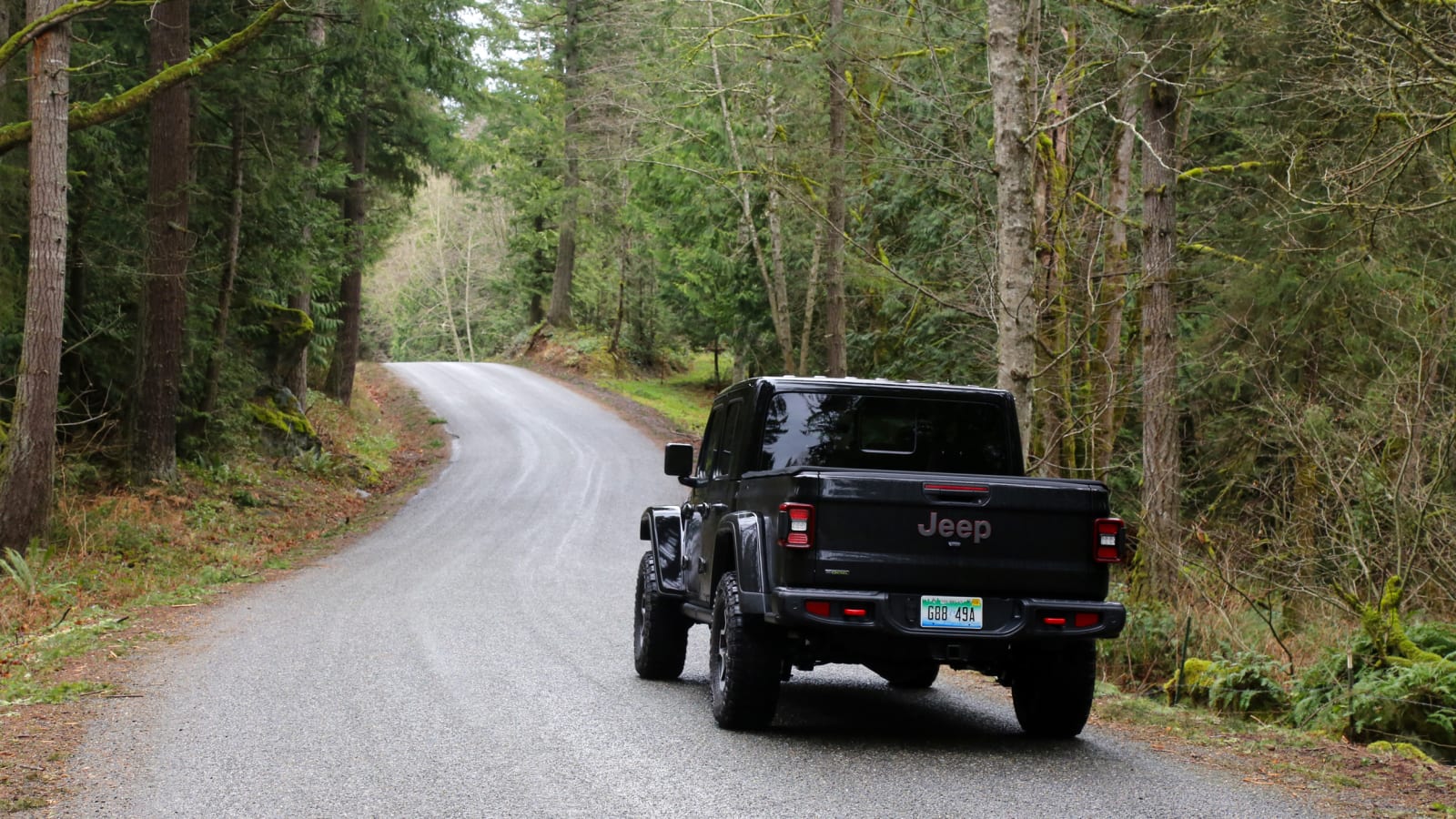MOUNT VERNON, Wash. — “Hey, you got it all dirty!” The guy in the UTV had spotted the 2021 Jeep Gladiator Rubicon parked nearby as he crawled over rocks to exit a 4×4 trail called the Timber Tamer. “Yeah!” I replied with false bravado, knowing the Gladiator hadn’t really earned its mud splatters. Yes, it was a Jeep, and a Rubicon, and with the low-end grunt of a diesel engine. But it hadn’t gone where the other Jeeps go. It got dirty at this off-road playground by sticking to the roads.
When handed a Jeep fob, you’re drawn to the backcountry, in this case the Walker Valley ORV Park on state land east of bucolic Mount Vernon. Walker Valley offers 36 miles of ATV and motorcycle trails, and 10 miles of 4×4 trails through forests and clear-cuts. But recon via YouTube videos revealed some gnarly terrain, with Jeeps rock-hopping, crunching into trees and driving through cuts as deep as the door handles. Who would borrow a $67,000 press truck and do that?
More of a question, who would crunch one’s own $67,000 truck?
Two gravel forestry roads transit the park. So the plan was, stick to those, enjoy the scenery, share a few Jeep waves. Like a kid who can’t come out to play because his mom is afraid he’ll get hurt, the Gladiator would just splash in the puddles and hang out to see what the other kids were doing.
It’s a paradox: This is a Jeep. With a diesel, even. You could do extreme Jeep things in it (at least as its long-wheelbase breakover angle will allow). But it costs so much, you probably won’t.
A Gladiator Sport starts at $35,060, including destination, not bad for what you get. A Rubicon — with its heavy-duty locking axles, remotely disconnecting stabilizer bar, 33-inch tires, skid plates, rock rails, Fox shocks, etc. — starts at $45,635.
This particular Rubicon got to $67,130 by including leather seats ($1,595); excellent LED headlight upgrades ($1,295); premium audio ($1,895); Freedom Top hard top ($2,395); and more. It had carpeting — which got muddy. Most expensive of all, and of particular interest, were the V6 EcoDiesel ($4,000) and its required eight-speed automatic ($2,000). The options totaled $21,495.
By the time the truck is on its second or third owner and isn’t worth as much, someone will use the heck out of that off-road hardware. But while you’re making payments, that seems unlikely to be you.
This is the same staggering set of facts our Byron Hurd grappled with recently in a $68,000 Ford F-150 4×4 SuperCrew Platinum. You can buy a nice Lexus or Mercedes for the $67,000 ask on this Jeep. Not a fair comparison, you say? Consider a corporate cousin: You could buy a similarly equipped full-size Ram Laramie Longhorn, or even a decently optioned Power Wagon, both in many ways more comfortable or capable.
So this Gladiator isn’t exactly a rock hopper, it definitely isn’t a luxury car, and with its small bed isn’t the most utilitarian of pickup trucks. Which might be why Jeep sells a third as many Gladiators as Wranglers, with dealers advertising discounts of between $4,000 and $5,000. There was a point last year when incentives hit $9,000, the same sort of incentive game as with other pickups.
But forget cost and utility for a minute. There’s also the matter of fun, and the Gladiator was a lot of that. Its upright, military style is rugged and appealing. It looks good. As pickups go, it’s a nice size to drive around town and to park.
Stepping into the cabin, you can imagine how our grandfathers felt driving this Jeep’s grandfathers in World War II. Its hip- and legroom are snug for a 6-footer, and the narrow footwell has no place for a dead pedal, leaving your left foot adrift. There’s headroom galore, but it’s odd to look around at the cabin’s leather and stitchery, then look up and see the naked fiberglass frame of the roof panels.
The vertical dash feels close. It’s well-organized but busy, with the center stack littered with controls for the 4×4 system, disconnecting sway bar and window switches, plus the usual HVAC controls and touchscreen. A red metal-look facia is meant to match the cabin’s red stitching, but in some light it was rose-colored, which seemed out of place in a truck.
UConnect is one of our favorite infotainment systems, and it just plain works. Selections on the 8.4-inch screen are small enough that you have to steady your hand on the dash of the jostling truck, stabbing at choices with a thumb. The front trail camera, with the ability to squirt it clean, is a nice option.
And because dogs like trucks: My dog is a leaper but had trouble jumping into the Gladiator’s back seat. Something about the narrow, five-sided rear doors intimidated him. (They worked OK for humans.) Once on the road, he looked as truck-proud and manly as a neutered doodle can be.
What you really want to know about is the EcoDiesel engine. It is excellent, with its 260 horsepower and impressive 442 pound-feet of torque far outgunning the Pentastar base engine’s 285 hp and 260 lb-ft. Consider that the original Willys Go Devil engine needed just 60 hp and 105 lb-ft of torque to beat the Nazis.
There’s a half-second of delay after pressing the ignition button, just enough to make you think “Uh-oh” before it fires up and you remember it’s a diesel. The engine clatters at times under acceleration, no surprise. With all that torque, putting a foot in it at 25 mph in 2H up a wet onramp gleefully spun the wheels. Peak torque comes on at 1,400 rpm, so if you did go off-road, you’d easily wrest free of anything that had you in its grasp.
The highway is where the diesel shines. It percolated cheerfully up the interstate and back, with tire noise overwhelming any engine noise. The truck claimed 28.6 mpg in an hour on the highway; otherwise it got 26.2 all-around, beating the EPA ratings of 21 city, 27 highway, 24 combined. (Non-Rubicons with the EcoDiesel are slightly better). It would be fascinating to see how it does on a longer trip. A range of 500 miles seems plausible.
Another paradox: The diesel’s great for the highway, but a Gladiator in general, not as much. The truck drifts dreamily from one side of the lane to the other on those 33-inchers. The steering’s numb, but you can hold a course, like offsetting wind and waves with the tiller of a boat. Seat comfort might be a sore point over a long haul.
With all that torque, you’d think the Gladiator EcoDiesel would make for a great tow vehicle. But the Rubicon with the Max Tow package has a tow rating of 4,500 pounds. Meanwhile, an automatic Gladiator Sport model with the V6 Pentastar and tow package is rated at 7,650 pounds. And a Ram 1500 with the same EcoDiesel is rated at three times as much, 12,560 pounds. The Rubicon EcoDiesel also takes a payload hit — 1,075 pounds compared with a lighter gas Gladiator Sport’s 1,700 pounds.
Who’s to say how long the EcoDiesel will hang around. A Gladiator 4xe plug-in hybrid, with 375 horsepower and 470 pound-feet of torque, is coming, and an also-torquey full-electric version can’t be far behind. As Jeep boss Tim Kuniskis said last month when announcing the Gladiator 4xe: “I’m not going to elaborate about diesel and the future of diesel and things like that, because I think you know.”
But for now: Gladiator, good. Diesel, good. One costing $67 grand? Depends on whether you want to get it dirty or not.
Related video:

